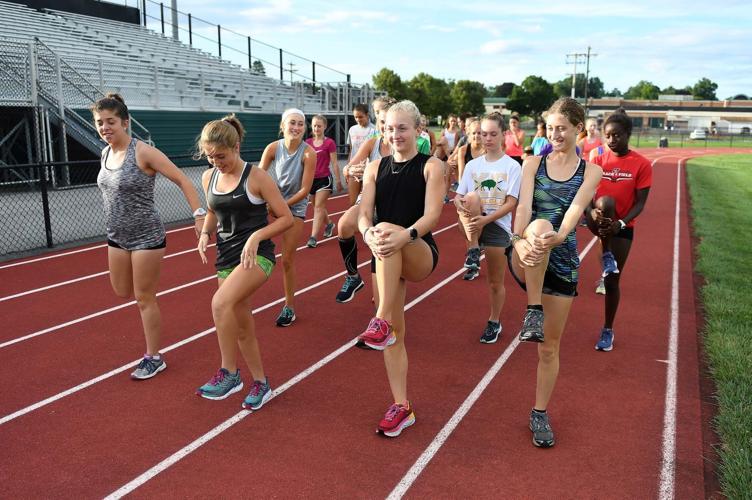Sports have long been recognized as a universal language that transcends boundaries, languages, and cultures. They possess a unique power to bring people together, promoting cultural exchange and understanding on a global scale. In a world that is increasingly interconnected, the role of sports in fostering cultural exchange and understanding cannot be understated. This essay explores the multifaceted ways in which sports serve as a bridge between cultures, promoting mutual respect, tolerance, and a deeper appreciation of our shared humanity.
Sports as a Global Connector
Sports have the remarkable ability to unite people from diverse backgrounds and cultures, regardless of their nationality, ethnicity, or beliefs. When individuals come together to support a common team or athlete, it creates a sense of camaraderie that transcends differences. Whether it's the Olympics, the FIFA World Cup, or the Super Bowl, these global sporting events provide a platform for people to celebrate their shared passion for sports. The global reach of such events fosters cultural exchange as fans from different countries gather, interact, and learn from one another.
Promoting Cross-Cultural Interaction
Sports events, whether local or international, often draw spectators and participants from around the world. This interaction of people from various cultures presents opportunities for cross-cultural exchanges that extend beyond the game itself. Fans who travel to attend these events not only experience the thrill of the sport but also have the chance to immerse themselves in the local culture of the host country. They sample the cuisine, explore historical sites, and engage in conversations with locals, thereby enriching their understanding of different cultures.
Breaking Down Stereotypes
One of the most significant contributions of sports to cultural exchange is its ability to challenge and break down stereotypes. When athletes from diverse backgrounds compete on the same team or against each other, it dispels preconceived notions and biases. For example, the NBA features players from all over the world, and their collective success demonstrates that talent knows no borders. This challenges stereotypes about race and nationality and encourages a more open-minded and inclusive perspective.
Promoting Peace and Diplomacy
Sports have often played a role in easing tensions and fostering peace between nations. The concept of "sports diplomacy" involves using sporting events and exchanges as a means to improve international relations. The "ping-pong diplomacy" between the United States and China in the 1970s, where table tennis matches helped thaw relations between the two countries, is a prime example of this. Sporting events can create a platform for dialogue and cooperation, allowing countries to put aside political differences in the spirit of competition and sportsmanship.
Cultural Exchange through Athlete Migration
The global nature of professional sports means that athletes often migrate from one country to another to pursue their careers. This athlete migration not only enriches the sports landscape but also leads to cultural exchanges. Athletes learn about new cultures, languages, and customs when they move to different countries to compete. In turn, they become cultural ambassadors, sharing their own heritage with their new communities.
Showcasing Cultural Diversity
Sports events often incorporate elements of culture into their presentations. From the opening ceremonies of the Olympics to halftime shows at major sporting events, cultural diversity is celebrated and showcased. This provides a platform for different cultures to present their art, music, and traditions to a global audience. It allows people from around the world to gain insights into cultures they may not have encountered otherwise.
Education and Awareness
Sports also play a vital role in educating people about different cultures. As international sports events are broadcasted globally, viewers gain exposure to the customs, traditions, and lifestyles of various countries. For example, during the FIFA World Cup, broadcasters often provide cultural insights and background information about the host nation, educating viewers about its history and people. This educational aspect of sports contributes to a more informed and culturally sensitive global society.
Bridging Language Barriers
While language can be a significant barrier to cultural exchange, sports provide a non-verbal means of communication. The rules and actions in sports are universally understood, transcending language differences. When fans watch a soccer match or a basketball game, they can follow the action and express their emotions without needing to speak the same language. This shared experience creates a sense of unity and connection among people who might not otherwise be able to communicate effectively.
Inspiring Cultural Pride
Sports also serve as a source of pride for many cultures. When a team or athlete from a particular country achieves success on the international stage, it often fosters a sense of cultural pride and unity among the people of that nation. This pride can extend beyond the sport itself, encouraging individuals to explore and embrace their own cultural heritage more deeply.
Promoting Values of Respect and Fair Play
Sports promote values such as respect, fair play, and sportsmanship, which are essential for fostering cultural understanding. These values are not confined to a single culture but are universal principles that transcend borders. When athletes and fans witness displays of sportsmanship and respect on the field, it reinforces the idea that these values are shared by people from all walks of life.
Supporting Social Change and Inclusion
Sports can be a catalyst for social change and inclusion. When athletes use their platform to advocate for important social issues, it can inspire positive change and raise awareness about cultural and social disparities. For example, athletes like Muhammad Ali and Colin Kaepernick used their fame to bring attention to issues of racial injustice and inequality, sparking important conversations and driving cultural change.
Encouraging Youth Participation
Youth involvement in sports is a powerful tool for fostering cultural exchange and understanding. When young people from different backgrounds come together to play on the same team or compete against each other, they learn valuable lessons about teamwork, cooperation, and respect for diversity. These experiences can have a lasting impact on their attitudes and behaviors as they grow into adults.
Supporting Cultural Heritage Preservation
In some cases, sports can play a role in preserving cultural heritage. Traditional sports and games are an integral part of many cultures, and their continuation is important for maintaining cultural identity. Events such as the Highland Games in Scotland or the Sumo wrestling in Japan showcase the historical and cultural significance of these sports. By promoting and participating in these activities, individuals can help ensure the preservation of their cultural heritage.
The Role of Sports in Conflict Resolution
Sports can be instrumental in conflict resolution and peace-building efforts. In regions where there is ongoing conflict or historical tensions, sports programs that bring together young people from different communities can serve as a platform for building trust and understanding. By participating in sports together, individuals from opposing sides of a conflict can see each other as human beings rather than adversaries, laying the foundation for dialogue and reconciliation.
Empowering Women and Challenging Gender Stereotypes
The world of sports has historically been male-dominated, but it is increasingly becoming a platform for gender equality and women's empowerment. Female athletes who break records and challenge gender stereotypes inspire not only young girls but also challenge cultural norms regarding the roles and capabilities of women. This empowerment through
sports contributes to broader social change and the dismantling of gender-based cultural barriers.
sports play an indispensable role in fostering cultural exchange and understanding in our interconnected world. They transcend borders, languages, and differences to bring people together in celebration of a shared passion. Through sports, individuals have the opportunity to challenge stereotypes, promote peace and diplomacy, showcase cultural diversity, and educate themselves about the world's rich tapestry of cultures. Moreover, sports instill values of respect, fair play, and sportsmanship that are essential for building bridges between cultures.
As we continue to navigate a world that is becoming increasingly diverse and interconnected, the role of sports as a cultural unifier remains vital. Whether it's the euphoria of the World Cup, the excitement of the Olympics, or the local sports club,
sports have the power to inspire, educate, and promote understanding among people from all walks of life. Embracing this power and recognizing the importance of sports in fostering cultural exchange is essential for building a more inclusive and harmonious global society.

















